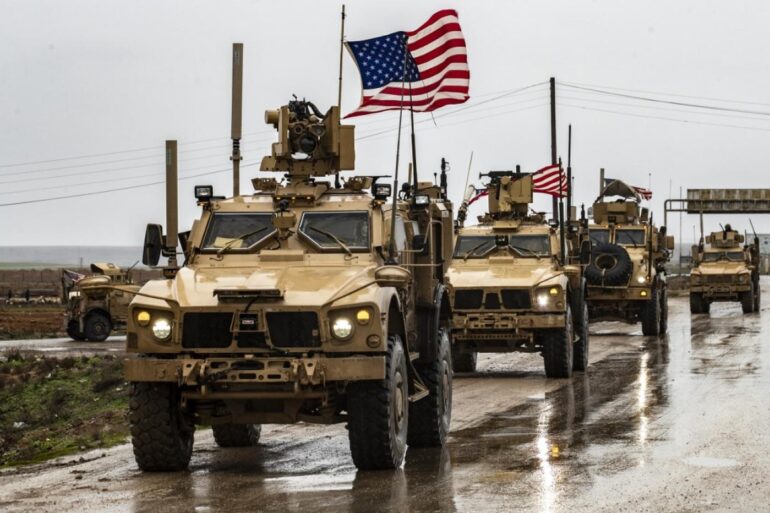TL;DR:
- Tech leaders and AI experts emphasize the urgent need for the US military to harness its military data and invest in emerging technology to compete with China in the era of AI-driven global conflict.
- China currently outspends the US threefold on developing AI tools, recognizing the disruptive potential of AI in warfare.
- Recommendations include centralizing data to train AI models and upgrading the workforce to maintain competitiveness.
- Congress is engaging in discussions and introducing bills to address the slow response to evolving AI technology.
- The establishment of an AI-focused federal agency is proposed to regulate AI’s nascent field.
- AI is considered a national security lifeline for the US, with the potential to surge ahead of China if an aggressive and deliberate approach is adopted.
Main AI News:
In the realm of global conflict, artificial intelligence (AI) has emerged as a game-changer, and tech leaders, along with AI experts, have sounded the alarm on the United States’ lagging position compared to China. They emphasize that the US military must act swiftly to leverage its vast military data and invest in emerging technologies to remain competitive.
During a hearing before the House Armed Services subcommittee, Alexandr Wang, CEO of Scale AI, made a compelling case. “The country that can rapidly and effectively integrate new technology into war-fighting emerges victorious,” he asserted. Wang highlighted the substantial disparity in AI investment between China and the United States, revealing that China outspends the US threefold in developing AI tools. “The Chinese Communist Party profoundly comprehends AI’s potential to disrupt warfare and is making significant investments to capitalize on it,” Wang added. “AI is akin to China’s Apollo project.”
Wang, a visionary leading a generative AI startup based in San Francisco, urged the Pentagon to consolidate its data resources for training AI models and upgrade its workforce to stay competitive. His recommendations were part of a larger panel discussion held by the HASC’s Cyber, Innovative Technologies, and Information Systems Subcommittee, which was established in 2021 with a specific focus on artificial intelligence and the future of warfare. This hearing represents just one instance in a series of discussions aiming to address Congress’s delayed response to the rapid evolution of technology. The recent emergence and widespread adoption of popular AI tools like ChatGPT have underscored the sluggishness of Capitol Hill’s actions. In response, lawmakers have introduced a flurry of bills and proposals encompassing various aspects of AI, including data privacy and the government’s utilization of this transformative technology. Some have even proposed the establishment of an AI-focused federal agency tasked with regulating this nascent field. Klon Kitchen, a former CIA officer and current fellow at the American Enterprise Institute, highlighted the critical role AI can play in national security, stating, “AI can be a national security lifeline for the US If we adopt an aggressive and deliberate approach, the United States has the opportunity to surge ahead of Beijing.”
Amidst this rapidly evolving landscape, experts and entrepreneurs in the burgeoning AI field have become invaluable resources for an aging Congress seeking to bridge the knowledge gap. One such figure is 26-year-old Alexandr Wang, who dropped out of MIT at the age of 19 to establish Scale AI. His company focuses on data annotation, leveraging a global workforce of over 240,000 individuals across countries like Kenya, Venezuela, and the Philippines to label images and videos, training AI programs in the process. With a current valuation exceeding $7 billion, Wang stands as the youngest self-made billionaire in the world.
Wang’s close ties with lawmakers, particularly those who share his concerns about China, have afforded him a unique platform. Representative Mike Gallagher, a Wisconsin Republican and committee chair, echoed Wang’s apprehension, stating, “If China wins this competition, they will likely use that technology for evil, perfecting a repressive, totalitarian surveillance state and exporting that model worldwide.”
Conclusion:
The warnings issued by tech leaders and AI experts highlight the critical importance of the US military catching up with China in the realm of artificial intelligence. The significant investment gap between the two countries and China’s deep understanding of AI’s disruptive potential underscore the need for swift action. For the market, this signifies a pressing demand for AI-driven solutions in the defense sector. Companies focusing on AI technology and services for military applications have an opportunity to capitalize on the urgency of the situation by offering innovative solutions and partnering with government entities. The market is likely to witness increased investment and competition in the AI sector, with a specific focus on defense applications, as the US aims to maintain its technological edge and national security.

